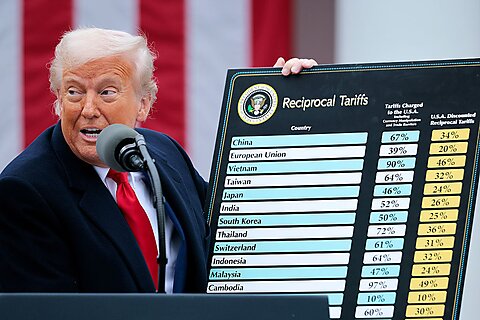Scott Lincicome
In the May 26 Washington Post, I provide six reasons why—contra the White House spin—Republicans can’t and shouldn’t count on President Donald Trump’s new tariffs to provide a steady stream of federal revenue to offset the 10-year cost of the “One Big Beautiful Bill” that just passed the House of Representatives:
Because all the tariffs were implemented via executive action, the next president could reduce or eliminate them as quickly as Trump imposed them, just as President Joe Biden did to some of the tariffs Trump imposed unilaterally during his first term.
Because the largest tariffs were imposed under the International Emergency Economic Powers Act on dubious legal grounds, an adverse court ruling in one of the several pending lawsuits would mean trillions less in revenue, and it could come in as little as 18 months. (For more on these legal challenges, check out today’s Cato event on the same subject.)
Trump himself will likely change the tariffs’ scope and application, as he has already done in recent trade deals with the UK and China and other deals during his first term. As long as tariffs are a bargaining chip, they can’t be considered reliable government revenue.
The administration also will likely exclude various products from the tariffs, as it’s already done for goods that qualify for the US-Mexico-Canada Agreement and consumer electronics (and also during Trump 1.0).
As almost all economists agree, the tariffs will reduce economic growth and thus offset much, if not all, of the increase in GDP caused by the OBBB’s tax cuts. Just as tax cuts can stimulate economic activity and boost future government revenue, Trump’s tariffs will have the exact opposite effect.
High and variable tariffs will encourage private parties to reduce or evade these taxes by rearranging their supply chains, exploiting legal loopholes, or smuggling. Various estimates show that these actions reduced US tariff revenue by billions of dollars during Trump’s first term, and economists expect even larger losses this time around. (Indeed, it’s already happening.)
Congress should pursue tax reform, but it should do so honestly by closing loopholes and cutting federal spending. My Cato colleagues Adam Michel, Romina Boccia, and others have provided several excellent ideas in this regard. For good reason, however, none of those ideas involve tariffs.
You can read the entire Washington Post piece here.

